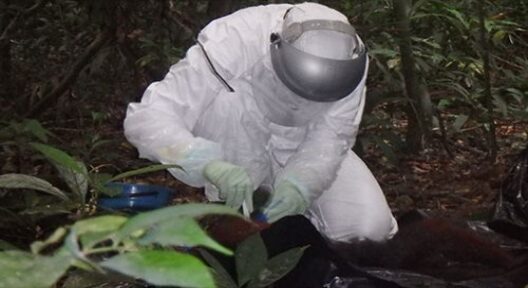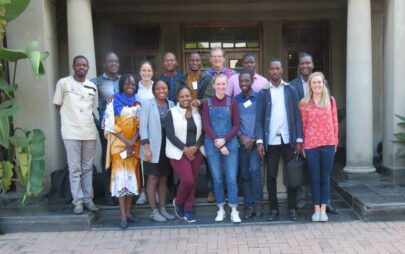TRICE: Training on Investigation and Control of Epidemics
Strengthening Expertise in Outbreak Investigation and Containment

Short Description
Compared to other regions in the world, the African continent is faced with a particularly high number of infectious diseases. These include acute fevers of unknown origin as well as anti-infective-resistant pathogens that have barely been examined to date. This demonstrates a significant shortcoming, as illustrated by the recent Ebola outbreak in West Africa.
TRICE is focused on recording infections in the context of outpatient or inpatient care, assessing how resistant the detected pathogens are to anti-infectives, developing diagnostics for haemorrhagic fevers (such as Ebola), and establishing prevention strategies. These knowledge gaps are to be filled by introducing targeted training components. These include laboratory training sessions on bacterial pathogen diagnostics, blood culture diagnostics, resistance testing, fevers of unknown origin, and training modules on the epidemiology of infectious disease, surveillance in hospitals as well as detecting and managing outbreaks (within and outside hospitals). These training sessions are conducted on the ground and adapted to local conditions.
The project is being carried out in collaboration with the BMBF funded German-African health research network ANDEMIA and the GHPP Project ARGOS.
Aims of the Project
- Supporting prevention and intervention activities relating to transmitted hospital infections and pathogen-specific outbreaks among the population, as well as with regard to the targeted use of anti-infectives.
- Strengthening expertise in laboratory diagnostics, the development of local surveillance systems in hospitals, and the investigation and combating of outbreaks
In Cooperation with
- Centre Muraz (CM), Burkina Faso
- Centre Hospital University Sourôu Sanou (CHUSS), Burkina Faso
- Bouaké University Teaching Hospital (CHU Bouaké), Côte d’Ivoire
- University Alassane Ouattara (UAO), Côte d’Ivoire
- Central Laboratory of Animal Pathology (LANADA), Côte d’Ivoire
- National Institute for Biomedical Research (INRB), Democratic Republic of the Congo
- Kinshasa University Hospital, Democratic Republic of the Congo
- National Institute for Communicable Diseases (NICD), South Africa
- University of Pretoria (UP), South Africa
Publications
Gryseels S, Mbala-Kingebeni P, Akonda I, Angoyo R, Ayouba A, Baelo P, et al. (2020)
Role of Wildlife in Emergence of Ebola Virus in Kaigbono (Likati), Democratic Republic of the Congo, 2017. Emerging Infectious Diseases, 26(9), 2205-2209. doi: 10.3201/eid2609.191552
Last update: July 2021

